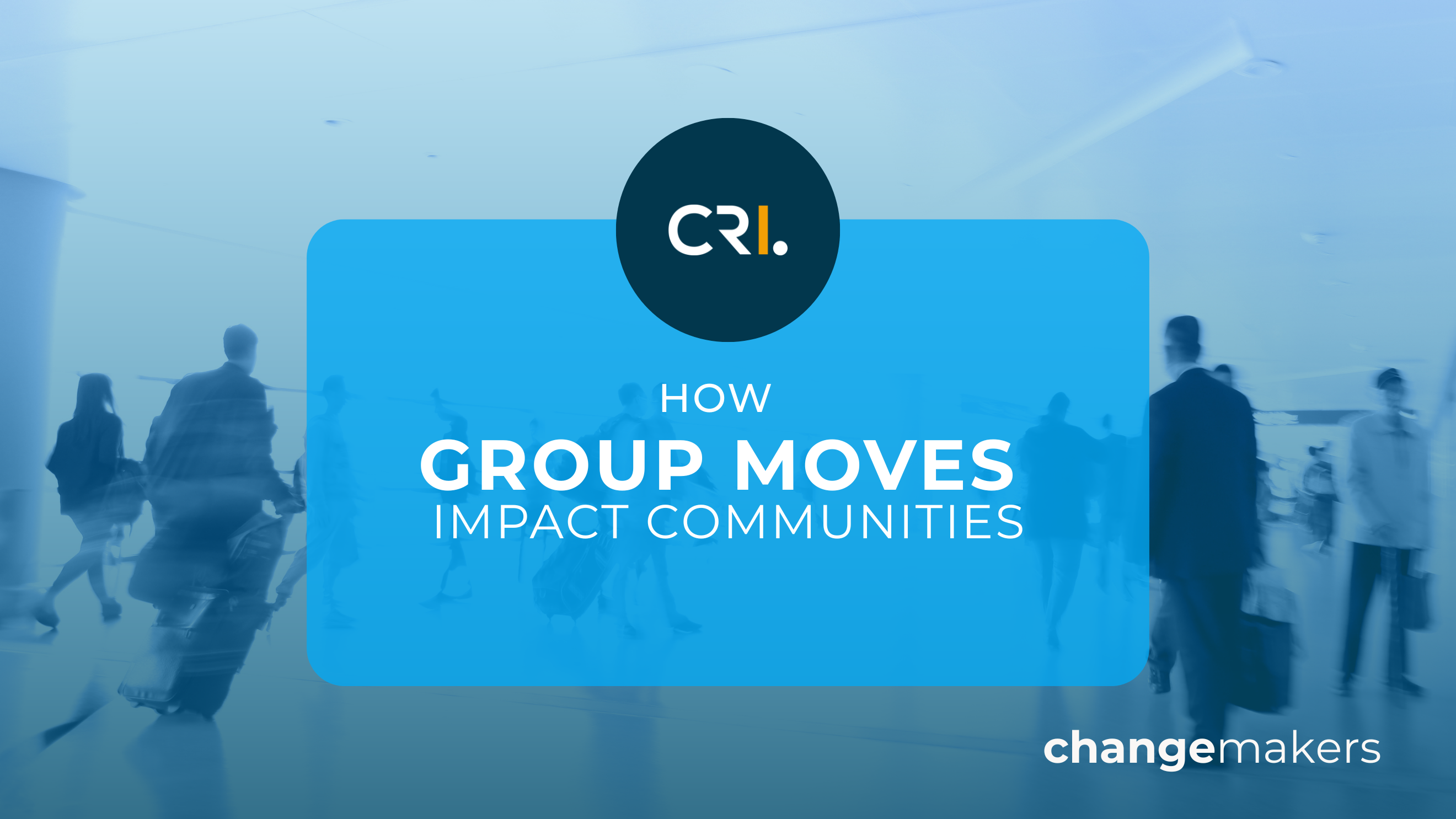
Group Moves in North Texas: What HR Leaders Need to Know
When a company relocates a group of employees—whether it's a few dozen or an entire division—the impact extends far beyond office walls. These moves can reshape communities, spark economic growth, influence housing and school systems, and directly affect employee satisfaction and retention. North Texas offers a compelling case study of how corporate group relocations can transform the places where they take root.
A Corporate Migration That Transformed a Region
Over the past decade, North Texas has become one of the most attractive destinations for corporate relocations in the U.S.—and that momentum isn’t slowing down. With no state income tax, a pro-business regulatory environment, and a central location offering easy access to both coasts, the region checks all the boxes for operational efficiency and long-term growth.
Anchored by DFW International Airport and a robust highway and rail network, North Texas is a logistics powerhouse. Add in a lower cost of living, affordable real estate, and a strong talent pipeline fueled by institutions like SMU, UT Dallas, and UNT, and the case becomes even stronger. Just as important, the area offers a high quality of life—top-rated schools, safe communities, and vibrant arts, dining, and recreation scenes that appeal to a diverse, mobile workforce.
Major employers like Toyota, PGA of America, Charles Schwab, and now NVIDIA haven’t just relocated—they’ve helped redefine the region. Toyota’s move to Plano brought 4,000 employees and sparked over $7.2 billion in economic impact, catalyzing the creation of Legacy West. The PGA of America’s move to Frisco is projected to generate $2.5 billion in economic activity over the next two decades. NVIDIA’s recent investment is positioning the region as a future hub for AI innovation.
These moves have fueled rapid growth—Frisco’s population has more than doubled since 2010—driving new housing, expanded schools, and critical infrastructure. For relocating companies, North Texas offers more than just room to grow—it’s a place where business thrives, talent stays, and communities evolve.
What This Means for Employers
If your organization is considering a group move, North Texas presents a strategic opportunity—but success doesn’t happen by chance. HR and mobility leaders must strike a balance between business objectives and the human experience. After all, it’s not just about moving talent—it’s about relocating people, families, and lives.
On the ground, here’s what that often looks like:
-
Housing demand spikes. Suburbs like Frisco, McKinney, and Prosper have seen population growth of over 50%, spurring rapid development in both housing and rental markets.
-
School districts expand. Enrollment in public schools and universities like UNT has surged, increasing the need for accessible, family-friendly resources.
-
Local economies grow. Corporate relocations bring new jobs, support small business development, and deepen regional talent pools.
However, these benefits only materialize when employees are well-supported during the transition.
A Phased Approach to Group Moves
Successfully managing a group move requires more than logistics—it demands strategy, empathy, and precision. Experienced Relocation Management Companies, like CRI, guide organizations through a four-phase process designed to reduce friction and maximize success:
Phase 1: Pre-Move Planning
Before any announcement is made, HR leaders must assess workforce demographics, anticipate relocation reluctance, and align policies with varying needs—homeowners vs. renters, families vs. singles, etc. Building flexible, tiered policies and accurate cost models lays the foundation for a smooth rollout.
Phase 2: Announcement and Communication
Transparent, timely messaging is key. Employees want to know how their lives will change—commutes, schools, hybrid options, support services—and how the company plans to help. Clear communication builds trust and eases uncertainty.
Phase 3: Execution and Support
This is where the move comes to life. Dedicated relocation consultants assist employees with home sales or rentals, lease break support, temporary housing, school enrollment, and more. Tech-enabled platforms allow both employees and employers to track progress, manage expenses, and access resources in real time.
Phase 4: Post-Move Evaluation
After the move, feedback loops matter. Surveys, exception tracking, and spend analysis help organizations measure impact, refine policies, and improve future mobility strategies.
By viewing relocation as a multi-phase journey—rather than a single event—companies can better support their teams and protect business continuity.
Why the Right Relocation Partner Matters
A group move is one of the most complex talent initiatives a company can undertake, and the right partner can make all the difference.
Here’s what to look for in a Relocation Management Company:
-
Regional Expertise: Deep knowledge of the local real estate market, cost-of-living considerations, and school districts is essential.
-
Scalable Services: Whether relocating 10 or 500 employees, your RMC should have the infrastructure to scale accordingly.
-
Human-Centered Support: From destination tours to spouse career assistance, personalizing the experience makes the transition smoother.
-
Smart Technology: Platforms that provide visibility into timelines, expenses, and employee needs—helping HR teams stay on track and responsive.
Relocation IS a Retention Strategy
People are at the heart of every relocation – and the way a move is planned and executed can have a lasting impact on how employees perceive an organization, its culture, and its commitment to their well-being. A well-managed move sends a powerful message: we value you, and we’ve got your back.
When employees feel supported during major life transitions, they’re more likely to stay, perform at a high level, and speak positively about the organization. That kind of support strengthens more than just retention—it builds morale, deepens engagement, fosters long-term loyalty, and helps preserve the institutional knowledge that keeps teams strong and businesses moving forward.
At CRI, we’ve supported companies through high-impact group relocations across the world, with a holistic approach that combines logistical precision with personal care. From customized policy design to tech-enabled tracking and dedicated move consultants, we manage every detail with intention and professionalism.
Let’s move more than your office—let’s move your people forward, with purpose and confidence.
